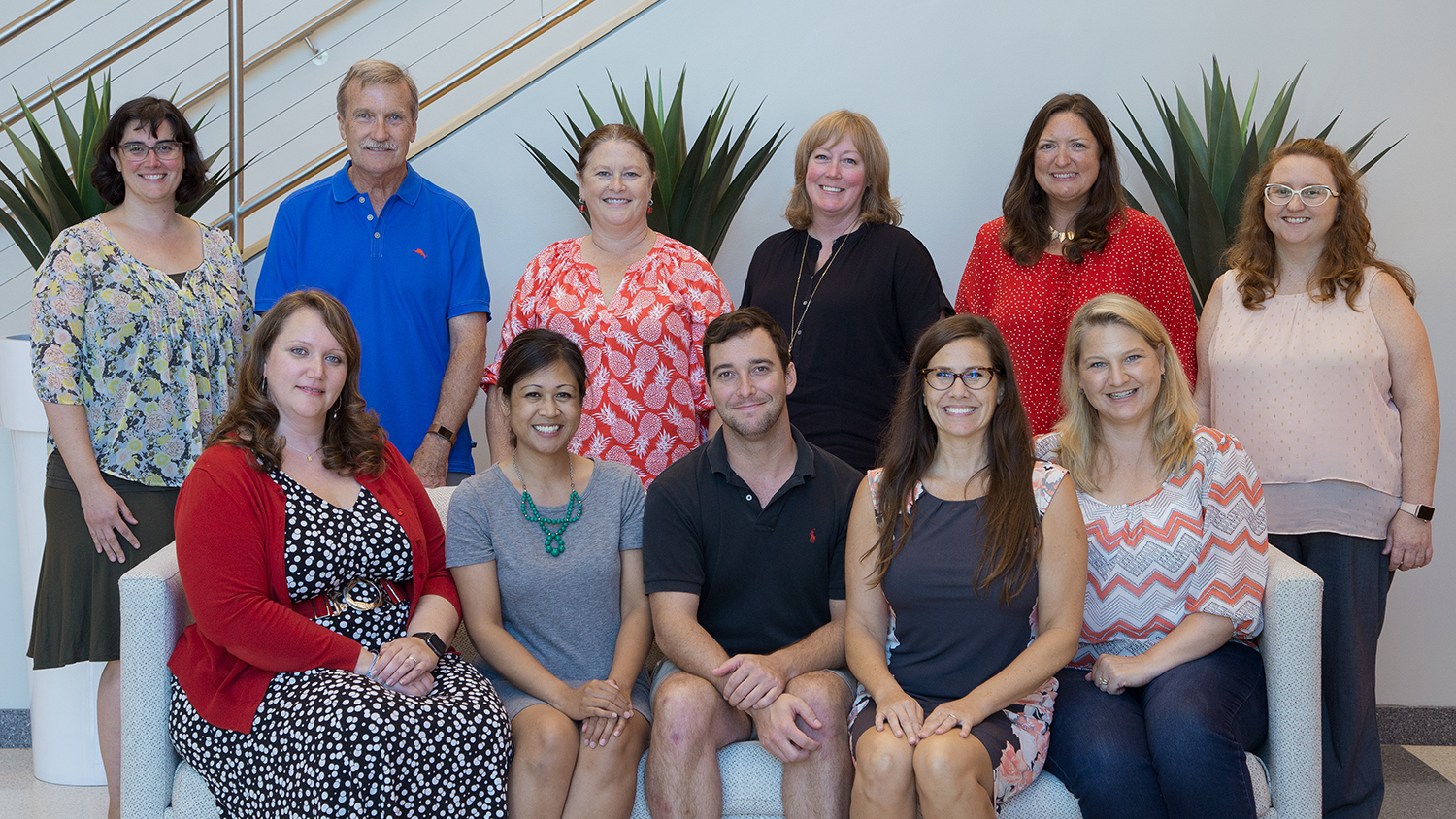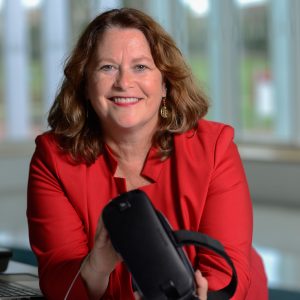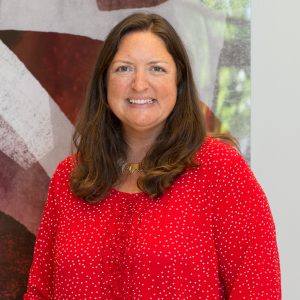New Cohort of Faculty Set to Apply Quality Matters

At NC State, a commitment to excellent teaching is at the forefront of its mission. Here at DELTA, we ensure that commitment is just as strong in online courses as it is in person.
To establish a culture of quality assurance in NC State online courses, DELTA initiated the Online Course Improvement Program (OCIP) in spring 2018. After a successful pilot phase, the OCIP group is gearing up for its second cohort of faculty.
The collaborative program between a cohort of dedicated faculty members and a group of DELTA staff is aiming to improve online courses to meet the nationally recognized standards of the Quality Matters (QM) organization.
QM developed a rubric of course design standards and a replicable peer-review process to provide guidance for improving the quality of online courses and a way to certify that quality across institutions. The research-supported and best practice-based standards and tools of QM are a driving force in online course quality.
The inaugural spring 2018 OCIP cohort composed of Tracy Appling, Cheryl Block, Marne Coit, Amanda Edwards, Ana Gray, Jill Grifenhagen and Paul Mulvey led the way for the program and are the first at NC State to have Quality Matters-certified courses, a prestigious accomplishment.
Through six face-to-face meetings and various online exercises, the spring 2018 participants completed the rigorous program to improve their courses based on feedback given and received throughout the program.
Two professors in the pilot program have already taught their courses and received great initial feedback from students. Another instructor said the structure of the QM course significantly reduced the number of emails from students with questions.
Throughout the pilot phase, the OCIP team along with Chris Willis and Dan Spencer from DELTA’s Planning and Assessment team collected data with plans to continue in the fall and contribute to QM research.
The OCIP group is facilitated by Lead instructional Designer Bethanne Tobey with Arlene Mendoza-Moran, Rebecca Sanchez and Bethany Smith. Instructional Technologist Christopher Beeson is joining the OCIP team this fall. Each OCIP participant will have a DELTA mentor to receive one-on-one consultations to review progress and work through challenges.
Teaching Associate Professor and DELTA Faculty Fellow Angie Smith is serving as the faculty lead for the fall 2018 OCIP group. During the program, she will be working on certifying the Introduction to College Counseling course, which is a core course in the College Counseling online graduate program.
For Smith, the support from DELTA in improving her online course has been remarkable.
“As instructors, it is not very often that we have skilled instructional designers and professionals review our courses and offer constructive suggestions that impact the design and delivery of our courses. The feedback and suggestions are invaluable to me and will ultimately benefit student learning outcomes. The process is supportive and non-judgemental, which is refreshing.”
She added, “I am looking forward to connecting with colleagues and learning from each other as we all seek to improve our courses this fall semester.”
Meet the fall 2018 OCIP faculty members and what they’re looking forward to this semester:
 Kim Allen, Associate Professor, Extension Specialist and Director of Graduate Programs, Department of Agricultural and Human Sciences
Kim Allen, Associate Professor, Extension Specialist and Director of Graduate Programs, Department of Agricultural and Human Sciences
“Going through the QM review process is difficult and complex. Working with professionals that not only know the QM system but have created resources and materials to assist in the review process is key to success. I feel very fortunate to have this opportunity.”
On the importance of quality online courses, Allen said, “Student success is key. My students take the information and skills they learn into the community to support youth and families hands-on. If this class is well designed and taught, not only are their learning outcomes improved, but there are also improved outcomes for the youth and families they serve.”
 Christine Cranford, Lecturer, Department of English
Christine Cranford, Lecturer, Department of English
“I am so excited to participate in the Online Course Improvement Program offered by DELTA. I have taught online classes for many years and I still find teaching online challenging. The structure of OCIP offers seasoned online teachers methods to improve course structure and course materials. There are many aspects of the OCIP that drew me to apply to the program. OCIP works with a small group of instructors and also pairs you with a DELTA member to help you develop your course to meet Quality Matters Standards. I am looking forward to working with instructors from other disciplines in the program and working directly with DELTA staff members.
Through OCIP, I am developing ENG 331: Communication for Engineering and Technology to meet Quality Matters standards. Taking a class online has a unique set of challenges for students and instructors; having ENG 331 as a Quality Matters-certified course will ensure students that they are taking a course that has met universal standards for a well-conceived and well-designed course. Students deserve to have quality instruction in all types of classes and knowing ENG 331 is Quality Matters-certified will ensure that students are able to participate in a positive online learning experience.”
 Molly Fenn, Teaching Associate Professor and Assistant Department Head, Department of Mathematics
Molly Fenn, Teaching Associate Professor and Assistant Department Head, Department of Mathematics
“I’ve been running the Calculus for Life and Management Sciences B (MA 231) blended course for a few years now and have been meaning to work on it, smoothing over rough edges, adding some content, etc. It’s hard to find time to do that polishing and this program seemed like a great way to make sure I made the time. I always love working with the DELTA team and love the different point of view working with them makes me take to my courses. It’s easy to focus on content and lose sight of the learning theory, so I really appreciate the guidance and support the DELTA team gives toward that refocusing.
I think getting the course certified will result in a smoother course from the student’s perspective. All the work I’ll be putting in to meet the standards should help me communicate with students better about what they should be doing, what they should be learning and demonstrating, and how all the pieces of the course are meant to support those goals.”
 Leigh Shamblin, Director of Leadership and Professor of Practice, Department of Management, Innovation and Entrepreneurship
Leigh Shamblin, Director of Leadership and Professor of Practice, Department of Management, Innovation and Entrepreneurship
“I always want to do the best job for students that I can. I’m new to online teaching, so the Online Course Improvement Program can help me do that.” Shamblin said she is most looking forward to learning how to see the course better from the student’s perspective and also how to meet high-quality standards.
On the importance of quality online courses, Shamblin said, “Students want the flexibility of learning at a time convenient for them. Online courses offer that opportunity. We want to reach diverse audiences that can’t always come to class in person. Online courses offer that possibility. In both cases, we need to deliver high-quality online experiences in order to engage students, meet our mandate as a university and deliver value.”
 David Shew, Alumni Distinguished Undergraduate Professor, Department of Plant Pathology
David Shew, Alumni Distinguished Undergraduate Professor, Department of Plant Pathology
“I have taught an online course in introductory plant pathology since 2006. There were many challenges to bringing a science class with a lab to an online audience and most of the technology and innovations invested in the class have focused on content. While a lot of the content was conceived and developed with learning outcomes in mind, it became apparent that I was not delivering the massive amount of content and technology in a format that optimized its value and utility. My former lab technician, who was instrumental in helping develop content for the class, had moved into a position with DELTA and when she told me about the opportunity to take my class to the next level using the Quality Matters approach, it had tremendous appeal to me to get involved with the OCIP program.
I am continually trying to improve my course, adding new content and designing new ways to let students experience the science of Plant Pathology. I am excited to learn more about how best to deliver the content I have so that students will get the most value from the course. Participating in the program with other faculty from diverse disciplines will be an excellent way to understand the power of good instructional design. By seeing the approach applied to diverse disciplines, you can see best how to focus on underlying delivery and not get caught up in the content.”
 Angie Smith, Teaching Associate Professor, Department of Educational Leadership, Policy, and Human Development
Angie Smith, Teaching Associate Professor, Department of Educational Leadership, Policy, and Human Development
“I am continuously looking to improve my courses and the Online Course Improvement Program provides a structured, detailed and intentional way for me to critically examine my course all while connecting with other colleagues across the campus who have the same interests. The program offers the opportunity to reflect and even “dissect” our course in a way that enhances alignment of all course objectives, learning activities, materials and much more.
Offering quality courses is essential for our program and college. As we design and deliver content with our students in mind, it is vitally important to consider how each student is receiving the information and engaging with it, especially in an online environment. The Quality Matters standards offer a roadmap for instructors to follow based on specific, detailed standards that help with the alignment and course design. Focusing on the quality of the design of each course will enhance the student’s overall experience in the course. I am grateful for the opportunity to uncover areas of my course that could be improved and enhanced while also meeting Quality Matters standards.”
—
DELTA is excited to welcome the fall 2018 OCIP participants and looks forward to the progress they make toward quality online courses.


